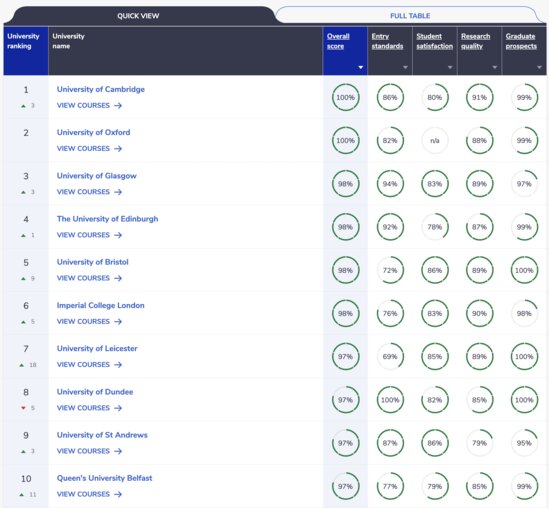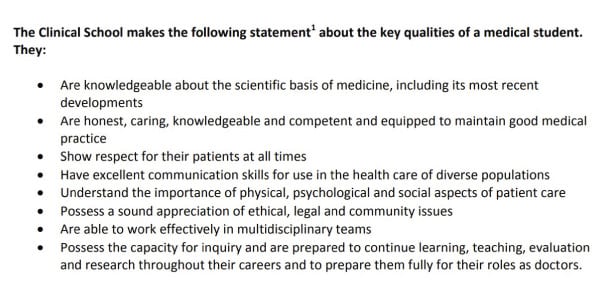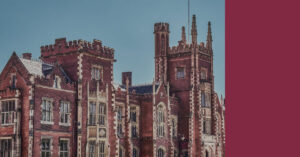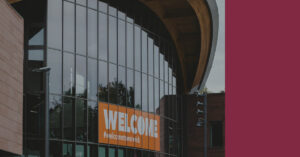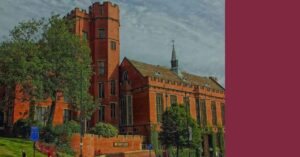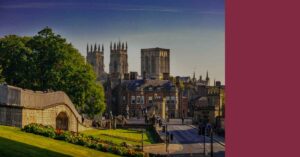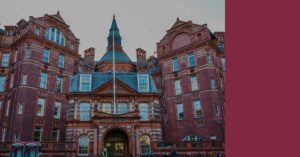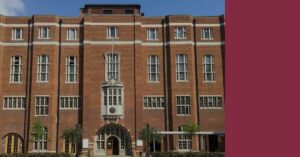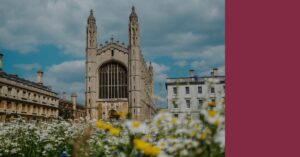Welcome to our UK Medical School review series. In this series, we work with current students to produce an in-depth overview of each UK Medical School, covering what it is like to study there, how the course looks and what you need to get in.
Today, we are focussing on Cambridge Medical School and Susannah, a fourth-year Cambridge Medic, kindly shares her experiences and studying/living insights as a current student. You can thank her later.
Let’s kick this off with an overview of Cambridge…
Overview Of Cambridge Medical School
About Cambridge Medical School
The teaching of Medicine at the University of Cambridge dates back to 1540 when Henry VIII endowed the University’s first Professor of Physic, Dr John Blyth. In 1976, in response to the recommendation of the Royal Commission on Medical Education, a complete Medical course was re-established in Cambridge with the opening of the School of Clinical Medicine at the new Addenbrooke’s Hospital site.
Today, studying Medicine at the University of Cambridge involves teaching through lectures, discussions, practical classes and clinical practice at the Medical and Veterinary Sciences Tripos (MVST). On completion of pre-clinical training, students can enter the School of Clinical Medicine. While patient-centred learning remains at the heart of modern medical education, research in the field of biomedical science provides the stimulus for much of the Clinical School’s core activity.
Cambridge Medical School
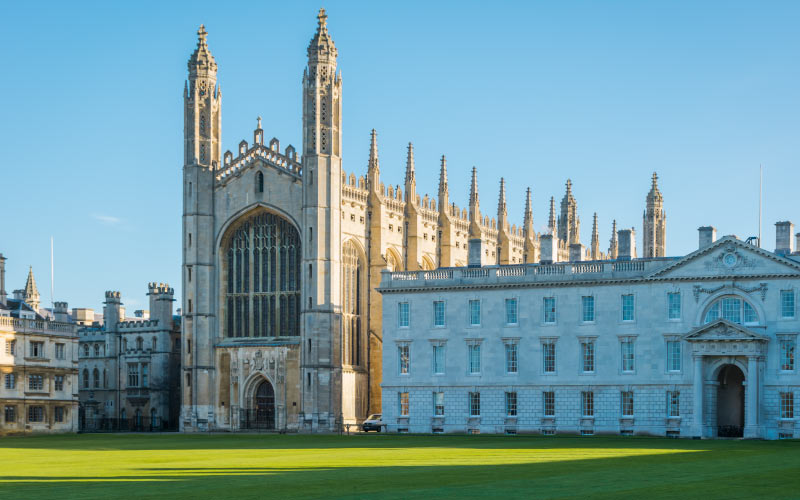
- University Age: 812
- UK Ranking: 1st
- Pint Price: £5.00
- Alumni Notability: 10/10
- A-level Requirements: A*A*A
- Places Available: 295
- Applicant Success Rate: 17%
- Teaching Style: Traditional
- Interview Style: Traditional
- Admissions Test: UCAT
Cambridge Medical School Alumni
Among Cambridge notable alumni are Nobel Prize winners Francis Crick and James Watson, pioneering biochemist Marjory Stephenson, psycho-analyst Alix Strachey and Sir Ian Wilmut, the man responsible for the first cloning of a mammal through Dolly the Sheep in 1996. The academics that Cambridge produce are not to be sniffed at! I hope you enjoyed the history lesson.
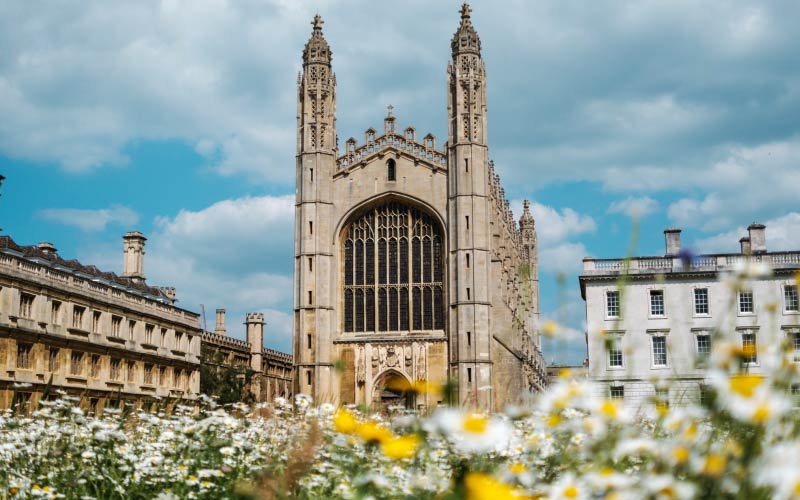
Why did you choose to study at Cambridge?
I chose Cambridge because I had always enjoyed being challenged academically and exploring science and medicine beyond the limits of my school textbooks. I knew that Cambridge would give me the opportunity to develop a deep understanding of my subject and explore particular areas of interest within the 3rd year intercalated degree. I was further attracted by the rich history of Cambridge; I loved the idea of studying at the university where in vitro fertilisation was invented and the structure of DNA was first discovered. The city of Cambridge is also a beautiful place, my first visit to my college blew me away and it has never stopped amazing me.
What is the best thing and worst thing about Cambridge Medical School?
The best thing about Cambridge is the academic stimulation it provides but this can also be the worst part. If you want a challenge, then you will certainly find it at Cambridge. You will have the opportunity to get involved in research at world-class labs and ask questions about scientific discoveries to the very people that made them and even attend talks by Nobel Laureates. The whole experience is undoubtedly inspirational and can drive you to work harder and delve deeper into your subject. This intellectual challenge, on the other hand, can also be very draining and it can often feel like you will never be finished and never know enough. Ultimately, you will find a balance and a level of knowledge that you are happy to put the work in to achieve.
Medical School Rankings
The 2022 UK Medicine League Table has already been published by The Complete University Guide. Interestingly, Oxford and Cambridge have not taken the number one spot but have moved up the table since 2021. Cambridge claims the top spot coming in 1st overall.
Rankings will, of course, differ between other tables; the Guardian includes different aspects to the Complete University Guide. When making your own decision on which table to look at, think about what you place more importance on, such as spending per student or career prospects. Keep in mind that all Medical Schools are highly ranked with excellent ratings across the board.
Cambridge Medical School Fees And Financial Support
The yearly tuition fees for Undergraduate Medicine and the Graduate Course in Medicine are both £9,250 for home students and £58,038 for international students. Tuition fee loans are offered to all UK students by the Government. These loans cover the course fees in full and fees do not have to be paid upfront. Cambridge offers a bursary scheme, faculty awards and grants.
If your household income is £25,000 per year or less, you’re eligible for the maximum bursary, currently £3,500 per year. There are also Widening Participation Scholarships such as the Stormzy Scholarship and Formula 1 Scholarship to support students from disadvantaged backgrounds.
What are the Cambridge living costs like?
Cambridge, being in the south of England, has quite high living costs. I would personally say the costs are quite comparable to London, a pint will cost £4 to £6, and private rent is certainly not much cheaper than living in London. That said, all colleges will be able to offer you accommodation for your undergraduate degree, which is much cheaper than private rent. My college had a range of rooms with some being more expensive than others, the cheapest was around £110 per week, while the most expensive rooms were around £150 per week for three 8 week-long terms. This does vary a lot between colleges, the older, richer colleges tend to give more rent subsidies than the newer ones. One advantage of Cambridge from a financial point of view is that you will very rarely need to use public transport as a student, everyone just gets around on foot or by bike.
Not sure where to start with your Medical School application?
Our Complete Bundle provides support for your Personal Statement, UCAT, BMAT and Interview and guides you to a successful application.
With our Complete Bundle, we guarantee that you will get at least one offer to study Medicine, or your money back.
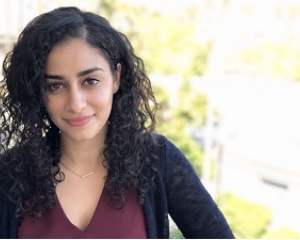

What Is Studying at cambridge medical school Like?
Cambridge uses the traditional style of teaching like Oxford. This consists of spending the first 3 years of Medicine studying a normal undergraduate degree in Medical Sciences. This is taught through lectures and supplemented by supervisions at Cambridge. Students spend their 3rd year working on a research project. The final 3 years of Medicine is spent in clinical placements, along with lecture teaching and college supervisions.
What is a week in first year like at Cambridge Medical School?
In first year you will study three main subjects: Functional Architecture of the Body, Homeostasis and Molecules in Medical Science. In real-world terms, these subjects are anatomy, physiology and biochemistry respectively. Each of these subjects will have two to three one hour long lectures a week, usually in the morning at 9AM or 12PM before lunch.
Both Homeostasis and Molecules in Medical Science have at least one 2 hours of practicals a week, while Functional Architecture of the Body has two dissection sessions per week. On top of this, you will have a one-hour long supervision for each subject which will be arranged by your college, these usually happen in the evenings on weekdays or possibly on a Saturday morning.
This may not at first seem like a lot of contact hours, it certainly does not fill a 9 to 5 day, but you will have set work and revision to do for each of your supervisions every week. Further to this, you will be expected to complete pre-reading for most of your practicals and you will often be quizzed on this content when you attend them.
Cambridge Medical School Degree Content
There are two Medicine courses offered at Cambridge. The first is the Standard Course.
Standard Course
Pre-clinical studies: years 1-3
- Taught through lectures, practical classes (including dissections) and supervisions, with typically 20-25 timetabled teaching hours each week.
- Successful completion of the first three years leads to a BA degree.
Clinical studies: years 4-6
- Learning in clinical settings: at the bedside, in outpatient clinics and in GP surgeries, which are supported by seminars, tutorials and discussion groups.
- After successful completion of the clinical studies in Cambridge, you are awarded two degrees, the Bachelor of Medicine and the Bachelor of Surgery (MB, BChir).
Assessments are on a weekly and termly basis. Formal assessments, includes written and practical examinations, coursework submission and clinical assessments.
Course Content:
Year 1 and 2: The main areas of learning in the MVST (Medical and Veterinary Sciences Tripos) are covered by courses in:
- Functional Architecture of the Body – examining and dissecting the human body, and includes living anatomy, and the use of modern imaging techniques.
- Homeostasis – covering the physiological systems which underpin the body’s regulation of its internal environment and its responses to external threats.
- Practical classes in experimental physiology and histology (the microscopic structure of tissues).
- Molecules in Medical Science – looking at the chemical and molecular basis of how cells and organisms work.
- Biology of Disease – nature and mechanisms of disease processes.
- Mechanisms of Drug Action – providing an understanding at the levels of both drug-receptor interactions and the effects on body systems.
- Neurobiology and Human Behaviour – covering the structure and function of the sense organs and central nervous system, the effects of drugs on brain function, and various psychological aspects.
- Human Reproduction – its social context, and its influence on demographic trends.
- Introduction to the Scientific Basis of Medicine – covering epidemiology and how it is applied in medicine.
- Social Context of Health and Illness – an introduction to the broader cultural aspects of healthcare and the medical profession in Britain.
- Preparing for Patients – which involves meeting patients in general practice (Year 1), in a hospital setting (Year 2), and through visiting community-based health-related agencies (Years 2 and 3).
Year 3: specialises in one of a wide range of subjects offered by the University to qualify for the BA degree. Options include:
- Part II Biological and Biomedical Sciences in Natural Sciences (offering a range of subjects such as Pathology, Physiology, Zoology, History and Ethics of Medicine).
- A subject less obviously related to medicine, such as Anthropology, Management Studies or Philosophy.
- Preparing for Patients continues.
- A single Part II Natural Sciences subject.
- Visit community-based health-related agencies and follow a woman and her family through her pregnancy.
Years 4-6: Clinical Studies:
Following an introductory course, each of the three years has its own focus:
- Core clinical practice (Year 4)
- Specialist clinical practice (Year 5)
- Applied clinical practice (Year 6) – is built around several major themes, including:
- Communication skills, patient investigation and practical procedures
- Therapeutics and patient management
- Core science, pathology and clinical problems
- Evaluation and research
- Professionalism and patient safety
- Weekly small-group ‘clinical supervisions’ with junior doctors to develop and monitor your clinical skills.
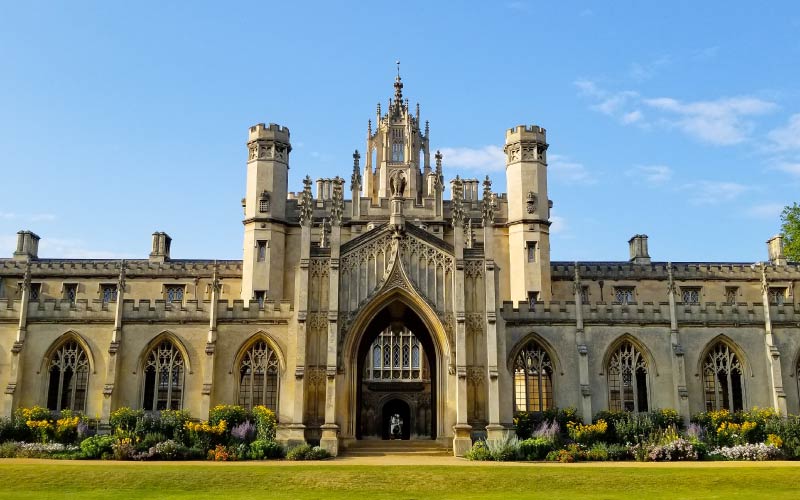
The other Medical Course is the Graduate Course.
The Cambridge Graduate Course (A101) is 4 year length. The structure of the course is:
- Level 1 (Years 1-2): Core Clinical Medicine and Core Medical Sciences
- Level 2 (Year 3): Specialist Clinical Practice
- Level 3 (Year 4): Applied Clinical Practice
The Cambridge Graduate Course students work alongside Standard Course students attending the same programme of lectures, seminars, tutorials, practical classes and supervisions. Pre-medical is 2 years instead of 3.
What Makes Cambridge Medical School Unique?
What is unique about Cambridge Medical School?
There is so much that makes Cambridge unique and many of these are my favourite parts about studying here. Most importantly, the support you receive academically is unrivalled by other medical schools. In first year, you receive at least three one hour long supervisions per week (even more in second year) in which you have the opportunity to discuss the content you are learning in groups of just 2 or 3 students with academics who are often world-leading in that field. This means that not only are you challenged intellectually but also any problems you might have with understanding the concepts are quickly recognised and addressed. These small group supervisions with your supervisors also provide an important point of pastoral support should you be having issues outside of academics.
The traditions at the University of Cambridge also serve to make it a unique experience. There are regular 3-course meals called formal halls which you will attend wearing your college gown and at my college, there is always Latin grace and a gong which sounds when its time to eat. This might sound like an archaic tradition but it usually costs between £10 and £15 and is a lovely occasion to spend with your friends. At the end of the year, there are also the May Balls, which colleges host to celebrate a year of hard work being over. These are unforgettable events with impressive firework displays, world-famous bands, and even funfairs. Cambridge is hard work but events like these make it all worth it.
Cambridge Medical School Academic Entry Requirements
Cambridge Admissions Statistics
| Number of applicants | ||
| Applications per place | ||
| Number accepted | ||
| Success rate |
| Exam | Standard Course |
|---|---|
| A-level | A*A*A |
| IB | 40-42 points, with 776 at Higher Level |
A-levels:
- A-levels in Chemistry and one of Biology, Physics, Mathematics.
- Most applicants have at least three science/mathematics A-levels and some colleges require this and/or particular subjects. See college websites for details.
- Over the last few years, 95% of applicants for Medicine had three or more science/mathematics A-levels and, of these, 23% were successful in obtaining a place. Of the 4% of applicants who had only two science/mathematics A-levels, just 3% were successful in gaining a place.
IB:
- A-level subject requirements also apply to the IB.
- Higher Level subjects will satisfy A-level subject requirements.
- IB applicants are expected to take IB Higher Level 'Analysis and Approaches' for any course where Mathematics is a requirement. If this option is not available at your school, contact the College that you are applying to for further advice and guidance.
Applicants must have:
- Good Honours degree (2.1 or above) in any discipline.
- A-level (or equivalent), most successful applicants typically have at least AAA at A Level or equivalent.
A-levels:
- Applicants must have A-level Chemistry (normally passed at grade A or above within seven years of entry) and one of Biology, Physics, Mathematics (at A or AS Level).
IB:
- A-level subject requirements also apply to the IB.
- Higher Level subjects will satisfy A-level subject requirements.
Craft an application worthy of Cambridge with 6med!
Our Complete Bundle provides support for your Personal Statement, UCAT, BMAT and Interview and guides you to a successful application.
With our Complete Bundle, we guarantee that you will get at least one offer to study Medicine, or your money back.


Cambridge Medical School Personal Statement
“You must be a keen scientist, with a sound scientific understanding” and are aware of the qualities of a good doctor. How do you provide evidence of this? Through work experience.
Although work experience will be discussed in an interview, you must write about it in your personal statement. Cambridge suggests that they are not picky about how work experience is obtained, but they want to see your suitability for Medicine by gaining experience in a health or social care organisation.
Cambridge also advises applicants to research around the NHS and wider healthcare systems. More specifically, the challenges they face, their structures and staff perspectives. We always suggest reading the MSC Guide on the core values and attributes needed to study Medicine.
This is what Cambridge states as the ‘Key Qualities of a Medical Student’:
Cambridge Medical School Admissions Tests
UCAT
Cambridge previously required applicants to sit the BioMedical Admissions Test (BMAT), but since its removal in 2024, applicants for all medical schools in the UK are required to sit the University Clinical Aptitude Test (UCAT). Cambridge doesn’t typically use cut-off scores in its admissions test, including the BMAT previously.
Not sure about what to do in the UCAT? Start with our Introductory UCAT Guide!
Cambridge Medical School Interview
Interview Style
Interviews usually take place in Cambridge during the first three weeks of December. A small number of candidates may be asked to attend a further interview in January. The college will send out detailed information, explaining where to go, the format and what will be expected of you. Cambridge interviews around 70% of their applicants, so it helps to be prepared.
If interviewing is something you’re looking to excel at to receive your Cambridge Medicine offer, then our amazing Interview Bundle is right for you. There are about 1-3 interviews, each lasting between 20 and 45 minutes. The exact form and length of interviews vary from college to college.
Common Questions
Interviews are predominantly academic and subject-related general academic (to expand on the information you gave in your Personal Statement):
- Discussion related to the course – you should have some background knowledge and what it involves.
- To be asked to apply your existing knowledge to new situations.
The main focus of interviews is to explore your academic potential, motivation and suitability for your chosen course. Questions are designed to assess your:
- Problem-solving abilities
- Assimilation of new ideas and information
- Intellectual flexibility and analytical reasoning
Example Cambridge Medical School Interview Questions:
- What is an amino acid and why are there only twenty? (2021)
- How does blood maintain its pH? (2020)
- When is Newtonian Law wrong? (2018)
- What is [named disease]? (2019)
- If you were a grapefruit, would you rather be seedless or non-seedless? (2021)
- Why are you suited to the Cambridge course? (2020)
- What is something you dislike about the Cambridge Medicine course? (2021)
- What are the ethical issues of a patient refusing life-saving treatment? (2018)
- Is it more important to be competent or compassionate? (2019)
- What’s the greatest medical innovation this century? (2021)
- What do you think of assisted suicide? (2021)
- How would you describe a human to a person from Mars? (2019)
- What is a tree? (2020)
- If you were in charge of the nation’s health at the time of an outbreak of an unknown virus, what would you do? (2019)
- At what point is a person “dead”? (2018)
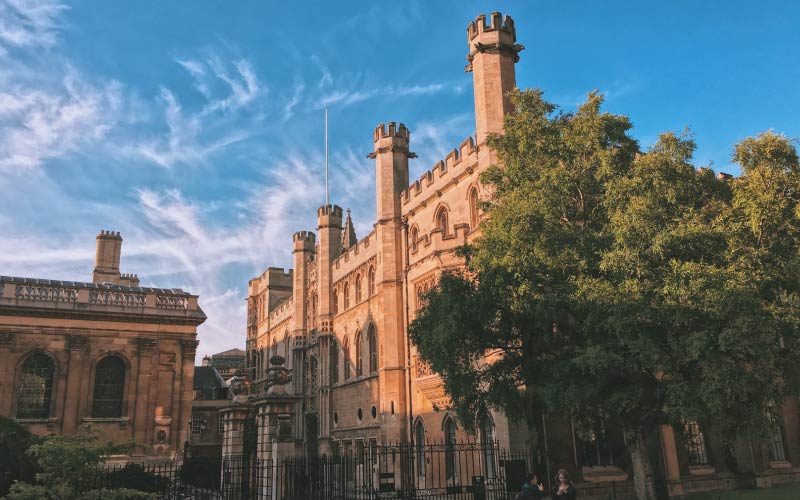
Extra-Curriculars at cambridge medical school
Outside of study time, what do most people get up to?
There is, unsurprisingly, a big rowing culture in Cambridge, every college has its own boat club with multiple different crews of different levels of commitment. In the first term, they will run programmes to train first-time rowers (novices) and you will be surprised how quickly you can pick it up. The rowing year culminates at the May Bumps races in which all the colleges set off 20 metres downstream of each other and attempt to win the race by ‘bumping’ into the boat in front. This is a really fun occasion whether you want to row in it or drink Pimms on the bank. Beyond rowing, there is every kind of sports society imaginable from ultimate frisbee to hockey. Most of the larger sports, for example, rugby, have both university-level teams, for those with more sporting ability, and college teams, which have a very casual level of commitment and may only play a game every couple of weeks.
Outside of sport, there are a lot of academic societies which host talks and debates in which you can further explore your intellectual interests. We also have a few nightclubs in Cambridge with popular university nights such as Lola Lo’s and Vinyl.
What is the Cambridge accommodation like?
Accommodation varies a lot between the colleges and there are no halls as such. Most colleges have a variety of styles of rooms and you will be given some choice over what type you would like. It is usually possible to get a room with an ensuite, for example, if you are willing to sacrifice on the size of the room and perhaps spend a little bit more on rent. There is also quite a bit of variation in cooking facilities with some parts of the older colleges only offering a kettle and a microwave to cook with. All colleges, however, have a dining hall that serves breakfast, lunch and dinner for reasonable prices to make up for any lack of cooking facilities.
Some colleges are extremely central and only a few minutes walk from the lecture theatres and labs, while others might be a 10-minute cycle. By the time you get to the clinical school at Addenbrooke’s Hospital in 4th to 6th year, the central colleges are more like a 20-30 minute cycle away. At this point, you may choose to live in privately rented accommodation which can be found closer to the hospital.
Career Prospects
Cambridge Medical students develop excellent communication, clinical, interpersonal and professional skills during their degrees, which is essential for good medical practice. The Cambridge curriculum focuses on preparing students for a range of careers across general practice, medicine, psychiatry and other specialities.
Cambridge Medical School Contact
Clinical School Reception may be contacted by telephone on +44 (0)1223 336700
Direct Admission Enquiries to [email protected] (telephone +44 1223 333308)
Advice for cambridge medical school applicants
What advice would you give to a first-year student starting at Cambridge Medical School?
As a first year student starting at Cambridge, you should be prepared to have quite a shock with the sheer volume of content in the course and the level of work that is required. It is a huge step up from what you will have experienced at school. The pace of delivery is very fast, and you are expected to assimilate this content and then produce arguments from it in your supervision essays each week. This initial shock and potentially a feeling of being overwhelmed does, however, pass and by the time you get to your second term, most students have developed a method of managing the workload. It is also very important not to get too absorbed in performing well academically, especially not in first year, when it counts very little towards your end degree, as Cambridge has so many unique experiences to offer and a lot of interesting people to meet.
Check out our other UK Medical School Reviews:
Not sure where to start with your Medical School application?
Our Complete Bundle provides support for your Personal Statement, UCAT, BMAT and Interview and guides you to a successful application.
With our Complete Bundle, we guarantee that you will get at least one offer to study Medicine, or your money back.


